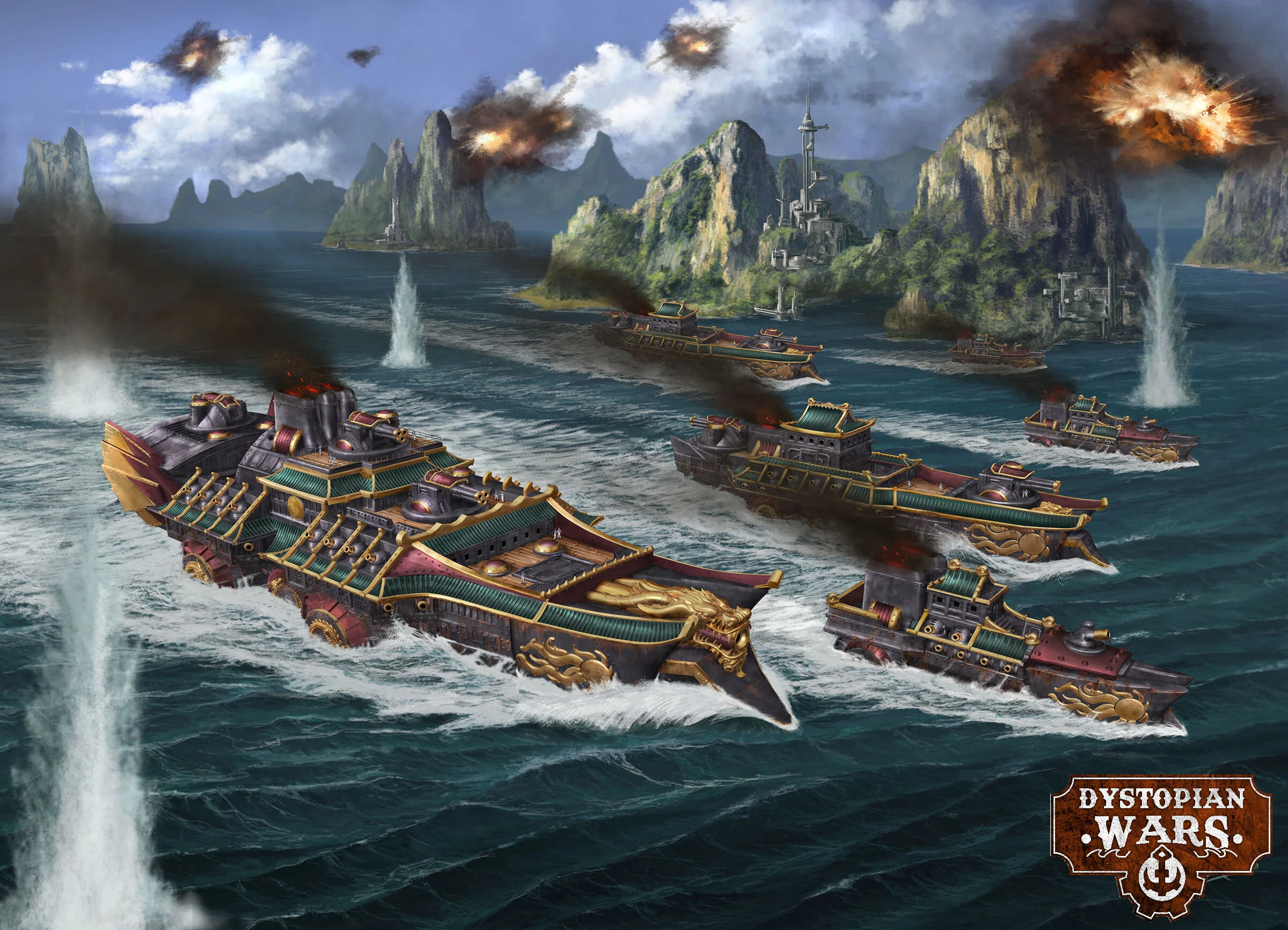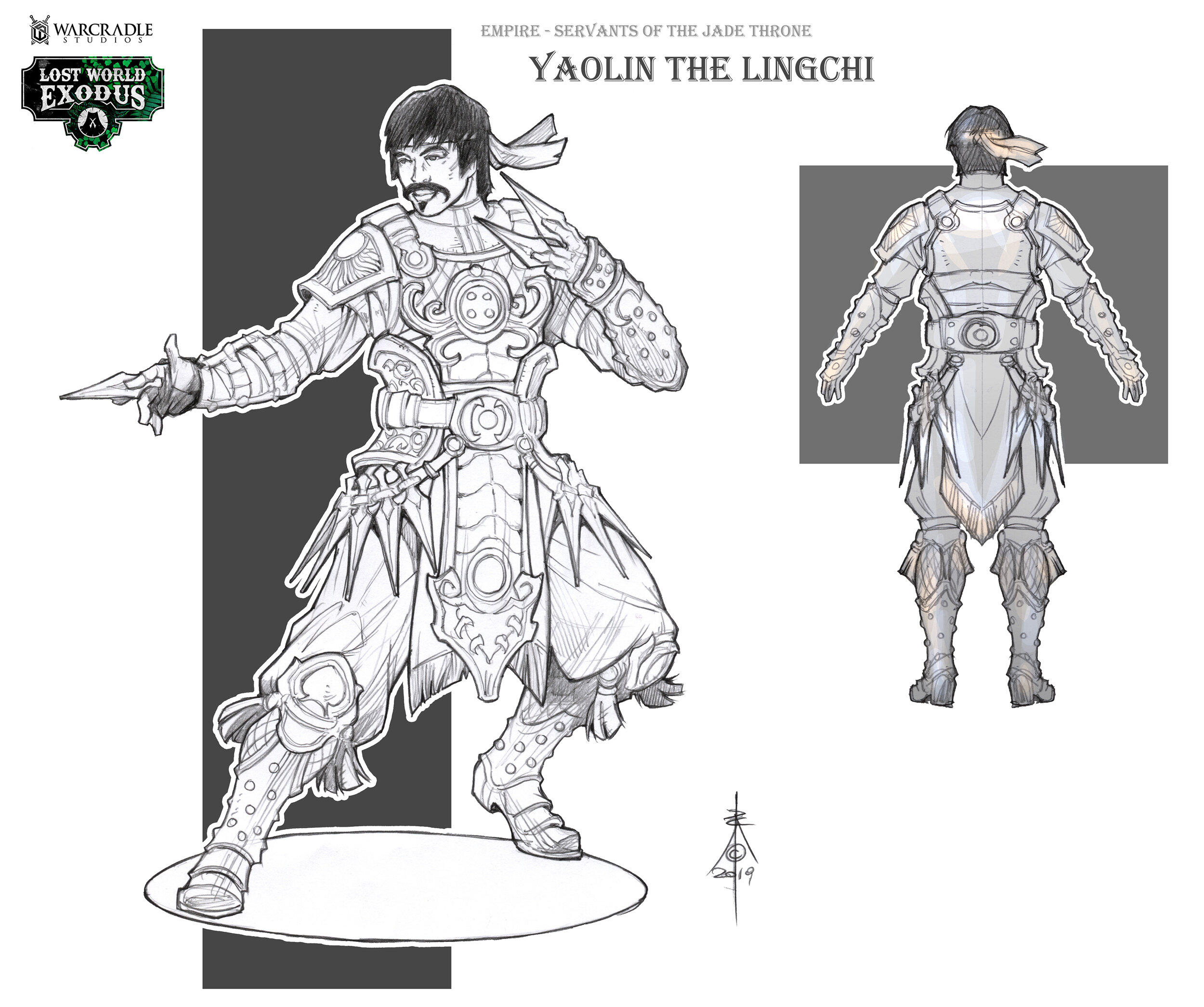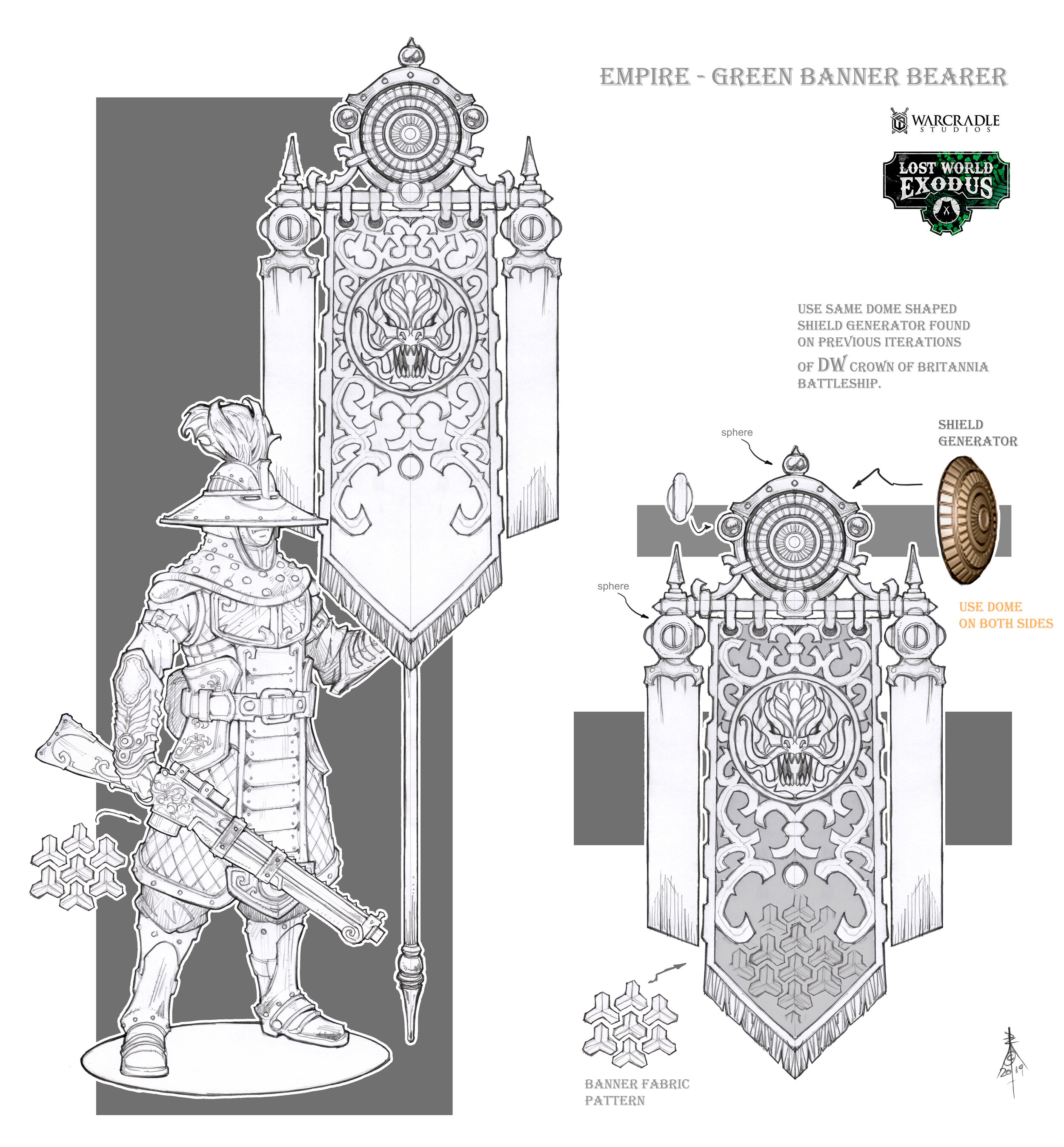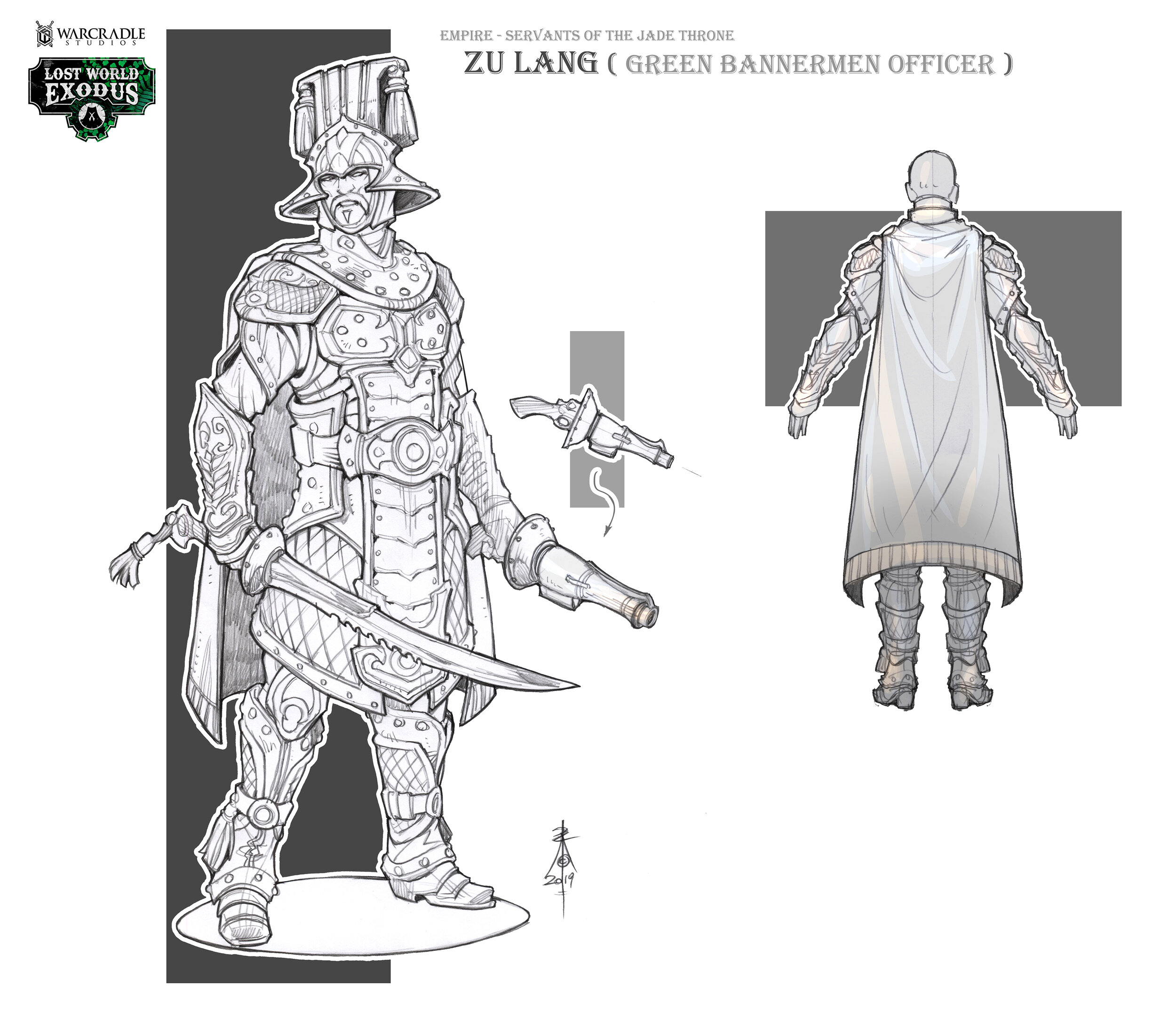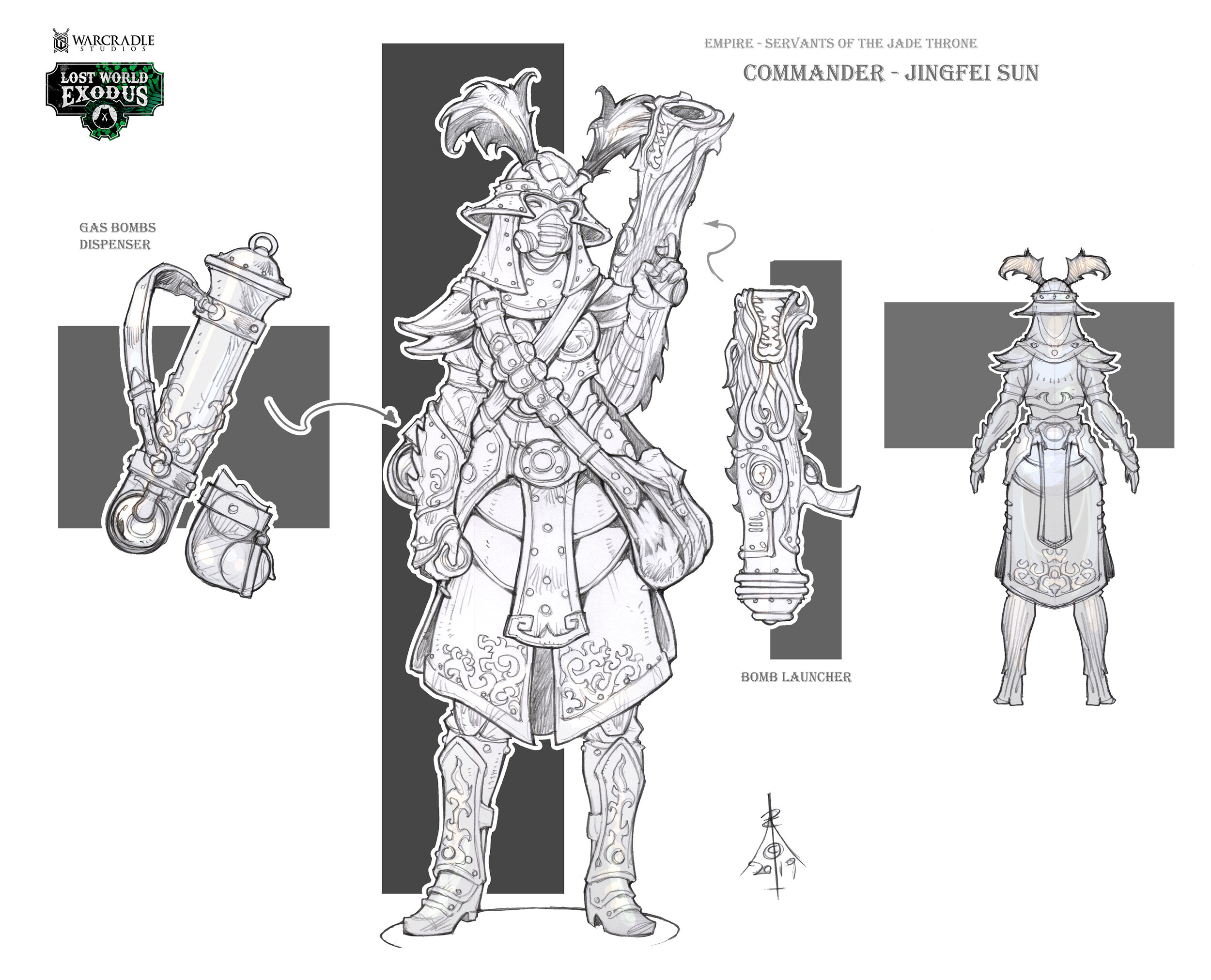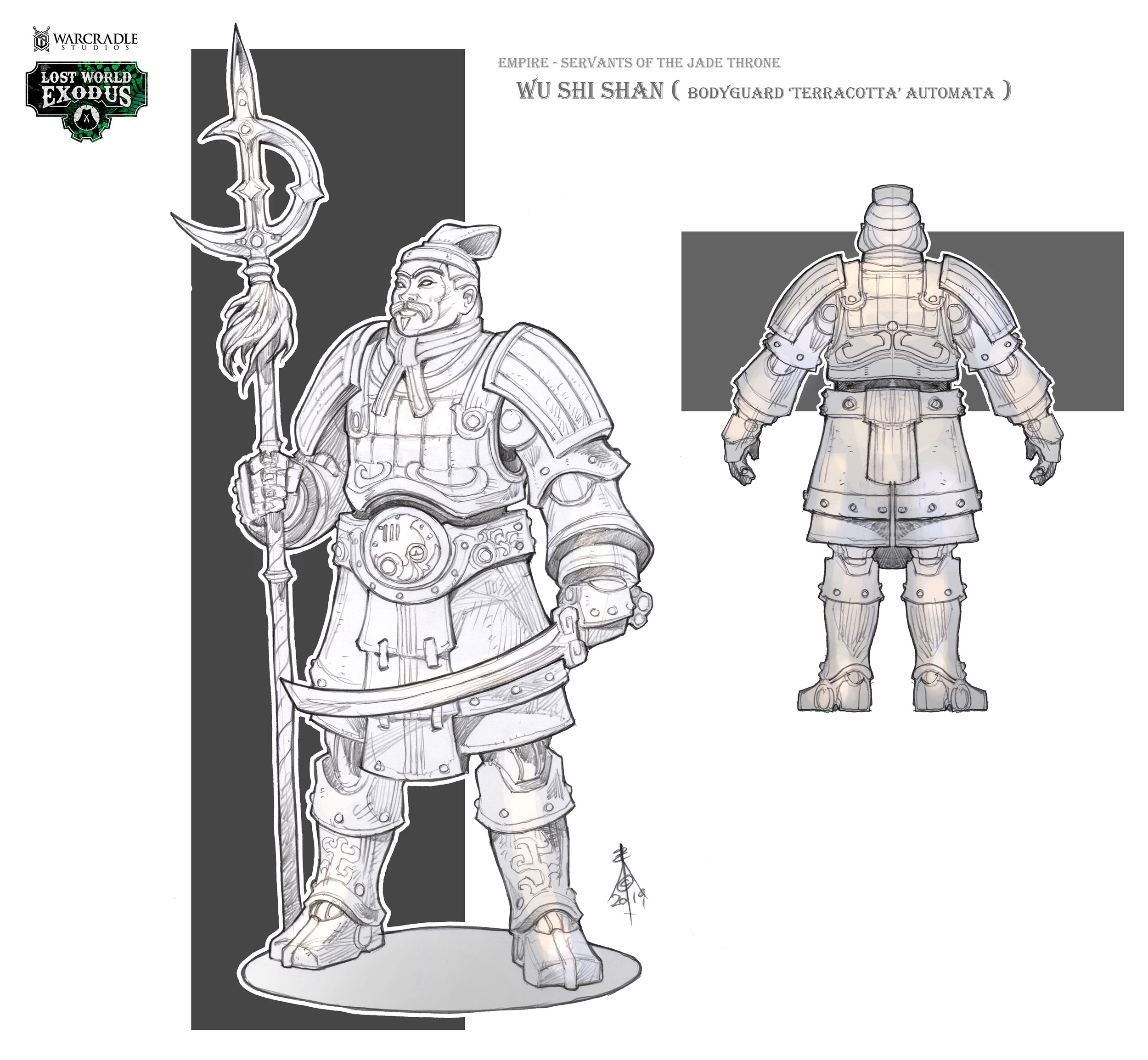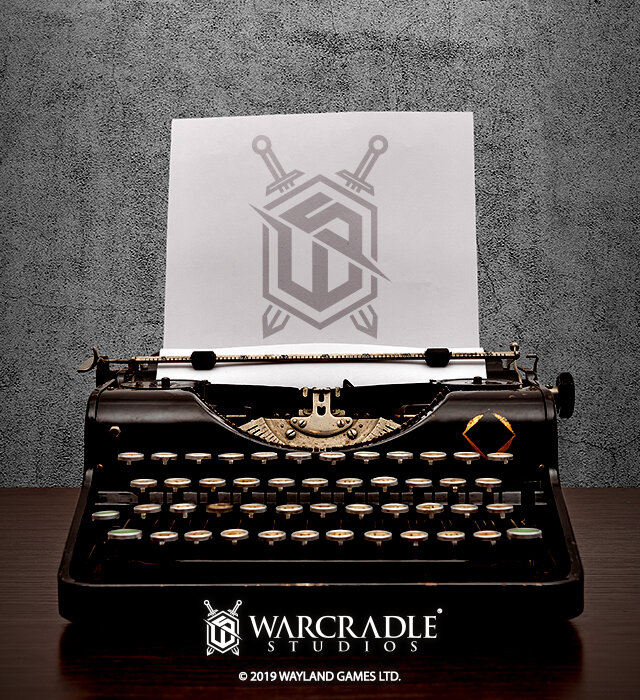One of the defining features of the Dystopian Age are the eight Great Powers whose influence spans the globe. One of the oldest and most accomplished of the Great Powers is the Immortal Celestian Empire. Their fascinating history is revealed in part here as this pan-Asian alliance has sat in dignified isolation for centuries, until now…
The Celestian Empire is not so much a single entity but rather an enduring partnership of some of the most powerful nations in the Eastern hemisphere. Established by the famous Jade Pact of the late 14th Century, the Celestian Empire includes the Seven Realms of the “Immortal Emperors”: the Chinese Empire, the Empire of Japan, the Joseon Kingdom of Korea, the Ayutthaya Kingdom of Thailand (Siam in Western parlance), the Toungoo Dynasty of Burma, the Empire of Dai Viet, and the Confederation of Madja-as. These seven states remain distinctly separate countries, although are bound by incredibly rich cultural and commercial ties which have been carefully nurtured over centuries of isolationist co-operation. Recently forced to reappraise their approach to the world after the ill-fated Anglo-Russian invasion of Korea, the Celestian Empire is determined to achieve a lasting peace, through total global domination if necessary.
Battlefleet Ning Jing sweeps forward to engage the enemies of the Empire.
In 1370, it is said that a group of monks arrived in the Chinese capital one cold morning unmarked and unnoticed. China had overthrown the domination of the Mongols a decade earlier and Emperor Ming was still establishing his dynasty. How the monks penetrated the Emperor’s private apartments changes with each telling of the story. In the young Emperor’s presence, the monks revealed themselves as members of the secretive Tian Shang – those who guarded an enlightenment they claimed was far more tangible than that offered by Confucian and Buddhist scholars. The monks presented an artefact to the Emperor, discovered many thousands of years ago by the founders of their sect. It was said that the man sized shard of unearthly material had come to Asia from the sky; whereupon it had been discovered and guarded by the Tian Shang. Shielded from outsiders by a cage of pure jade, the shard had amplified the spiritual awareness of the monks. These blessings they now sought to impart to the new Chinese ruler, so that his dream of a more perfect Dynasty could be realised. Emperor Ming accepted the tutelage of the monks and the power that they offered without hesitation, and for many months remained closeted with them in the halls of his palace; permitting no entrance but to his closest relatives. After this period of enforced seclusion, Ming embarked upon an ambitious plan, with the Tian Shang at his side - The Jade Pact.
The first to receive the emissaries of the new Emperor was the Kingdom of Korea, once a tributary state of the Chinese Empire. The Korean ruler, Sun Li, was greeted by Ming as an equal, not a vassal, and the two finally met after a year of negotiation at their mutual border. At this meeting, Sun Li was introduced to the artefact by the Tian Shang and was quickly convinced of the benefits of Ming’s plan and the knowledge on offer. These two rulers placed the first signatures upon the documents that would become known as the Jade Pact – pledging assistance and mutual support to one another in the face of foreign dangers and internal problems. Ming’s diplomatic endeavours, however, did not end there. Travelling swiftly, his agents contacted the rulers of Vietnam, Thailand and Burma. Each was offered the chance to join the Jade Pact as equals; participants in a new order that abandoned vassalage for common partnership. The most difficult to persuade was the Empress Shinzua of Japan, who was only finally convinced by the phenomenal powers of the artefact. Once imbued with a portion of its power, the seven rulers of these kingdoms were able to communicate across vast distances through the Dream – a meditative state permitting telepathic communication. Nobody fully understood the process and yet the Dream was all the more beneficial for its side-effects, particularly that within the Dream, no lie can be spoken. Unable to dissemble or deceive, Emperor Ming and his allies could expect their proposals to be accepted at face value. The final member of the Jade Pact, the islands to the south of China known as the Confederation of Madja-as, brought the total number of Jade Pact signatories to eight.
The Empire has refined diplomacy to a high art form. There is nothing that can be learned from Wenxiang that he does not wish you to know.
To speak of a uniform government within the Celestian Empire is a misnomer, for no overall structure exists. Rather, a network of treaty obligations, unwritten agreements and competing obligations enforce a partnership between these seven different states, each with its own governmental structure, law and customs. To examine all these in great detail in a single volume would be the work of a lifetime, but there are notable commonalities. Each nation is a monarchy, although in practice the degree to which the monarch wields power individually over their dominion varies considerably.
The Celestian Empire was closed to foreigners within a century of the formation of the Jade Pact. Whilst initially travellers from abroad were welcomed into the realms of the Immortal Emperors (as long as they followed local laws and customs and respected the traditions of their host country) this was found to bring too many problems. Some foreigners, it transpired, were more interested in the illicit trade of banned substances than in good business, while others engaged in the smuggling of arms and equipment to rebel groups that threatened the peace and stability of the Empire. A number sought to abuse their position and exploit the labour of Asia for their own profit. Better to ban all than to allow just one of these unscrupulous characters disturb the peace.
More troubling, at least for the Immortal Emperors if not their subjects, was the presence of individuals displaying a disturbing aura. This aura was visible only to those connected to the Dream. These creatures appear as a slick of foul oil upon the placid and cleansed waters of the telepathic network, tainting the pure energy of the artefact with something dark and horrific. Such beings were removed at once wherever they were found – even in the highest ranks of foreign dignitaries. Specially trained warrior monks of the Tian Shang, known as the Lingchi, ensure that such detection is swift. Such trespasses have since become astonishingly rare, especially following closer cooperation with the Blazing Sun’s ever-watchful Shinobi agents. Whatever foul intelligence guides such creatures has surely learned that to enter the borders of the Empire is to invite death.
Brother Yaolin has been assigned by the Tian Shang to accompany the Empire’s current expedition to Antarctica.
Only one region within the Celestian Empire has permitted free access to foreigners for any length of time, and even then, only to specific areas under close watch. These are the Merchant Ports – the cities and harbours in the Confederation of Madja-as where the wealth of a continent is bartered, bought, sold, traded and invested by the merchants of a hundred nations and more. Only trading houses with the wealth to pay the necessary fees and also possess the patience to navigate the paperwork can hope to hold down a presence here – but the riches to be made at this single opening in the Empire’s curtain walls make it worth every penny.
The servants of the Datu are therefore considered as something approaching diplomatic experts within the Empire; it is their expertise which has periodically ensured that necessary resources (particularly RJ-1027, of which the Empire has no indigenous source) continue to flow into the wider economy. They have tense, but close, relationships with a hundred merchant companies; in particular the East India Trading Company.
The Imperial Armed Forces (IAF) is the most unified of all the branches of the Celestian Empire. From the time the Jade Pact was formed, each element of the military has been under the control of a single Immortal Emperor, the Speaker, whose Court and Bloodline act as the central administration for that branch even as they work across national boundaries. Each has its own national contingent and HQ branch, but supreme authority is ultimately vested in the strategic councils of their chosen Speaker.
The Army, the largest entity (numerically speaking) within the IAF and one of the largest globally, is under the command of Thailand’s Emperor Anuman. Whilst not the biggest contributor in manpower terms, Thailand boasts the most well equipped and well-trained forces within the Imperial Army and, as such, Thai troops function as the Empire’s equivalent of elite guards regiments. The rest of the Army is predominantly Chinese, raised from the burgeoning populations of Emperor Ming’s extensive domains. Specialist divisions are recruited specifically from other nations, such as the Viet famed artillery corps and the Japanese naval assault troops. Senior officers from all nations must meet the exacting standards expected of Thai troops, and many serve rotations with Thai formations before returning to their own units.
The Chinese Pai of the Green Banner form the backbone of the Empire’s army.
The Imperial Navy, meanwhile, is the brainchild of Empress Shinzua, who as Speaker of the Fleets quickly moved to control all aspects of nautical warfare in addition to her originally more prosaic areas of responsibility. The Celestian Empire is considered a naval Great Power, especially after their stunning victories at Tsushima and Myeongnyang during the Anglo-Russian Invasion of Korea. All of the coastal nations of the Empire design, build, and crew their own warships, but all ultimately serve the Blazing Sun.
Imperial warships are a source of great pride within the Celestian Empire, and the chance to now use them more visibly with the borders opened has been welcomed by nobles and commoners alike. That said, there is an element of friendly competition amongst the Immortal Emperors about their own nation’s naval designs, with many considering their own warships far superior to their comrades’. Further tests in battle are unlikely to settle these disputes.
The Japanese Ashigaru are excellent landing troops, often deployed in support of naval operations and establishing beachheads.
The Imperial Air Hunters are the preserve of King Sun Li, the Cloud Dragon. Originally Speaker for the Hunters, referring to literal hunters as well as cattle farmers and more, Sun Li has achieved unprecedented influence within the Forum since also claiming all air technology as his responsibility. As such, the Imperial Air Hunters are under Korean command. Once again, these are formed of the many different national air-forces, but all bear the sigil of the Cloud Dragon. Much to the chagrin of Empress Shinzua, the Forum decreed that the Cloud Dragon is also responsible for all aerial units and support elements wherever they operate. As such, all aircraft carriers and their support elements are officially part of the Imperial Air Hunters and not the Imperial Navy. This has become something of a bone of contention between these normally close friends – especially as Sun Li has begun commissioning combat vessels as “aerial battlefleet support units”
Diving down on their foes, the Korean Doksuri are a deadly adversary in the Dystopian Age.
Recent events, however, have led to a shift in the Immortal Emperors’ thinking. Despite the protestations of the Commonwealth’s Mongolian subjects, the Tsar entered into a secret agreement with the British Crown to seize the tempting target of the “Hermit Kingdom”, the domain of the Cloud Dragon, Joseon Korea. The Anglo-Russian Invasion initially met with success but was then brutally repulsed by the combined might of the Empire’s united military. This was the first such action from Celestian Empire in the Dystopian Age and the other major global powers took note that the Empire’s long-held stance on isolationism appeared to be at an end.
This campaign, whilst vindicating the planning and approach of the Imperial armies, also made the Emperors reappraise their foreign policy. If isolation still invites attack in this modern age, they rationalised, then a more open but more guarded approach might achieve the same objective. The finest negotiators from Madja-as are now inviting their trading contacts to consider opening offices and warehouses in new Merchant Ports – one for each of the coastal powers of the Empire. This has the advantage of providing several other opportunities for trade, but also exposing more foreigners to the true might and wealth of the Immortal Emperors.
One further point must be mentioned – the relationship between the scientists and scholars of the Celestian Empire with the Covenant of the Enlightened. There are those Burmese, Korean, Japanese, Chinese, and Vietnamese scientists and scholars who are members of the Covenant. Free to travel beyond the borders of the Empire to learn and study from their Enlightened Peers, they are forbidden from returning with any assistants or counterparts from outside the Empire. Celestian born Enlightened such as Jingfei Sun maintain Promethean Complexes of their own throughout the realms, in particular in Vietnam and Burma. They are, however, not closely involved with any of the wider organisations and groups, or major projects pursued by some of the Enlightened, instead applying what they know in service of the Jade Pact first.
Each of the Great Powers in the Dystopian Age has a unique flavour to them. Hopefully, this insight into the Empire has helped you understand more about this first and possibly greatest of the Great Powers. But there is much more to be revealed about the nations of the Empire and future Studio Diaries will delve deeper into Japan, Korea and beyond.
Until next time!
Stuart


